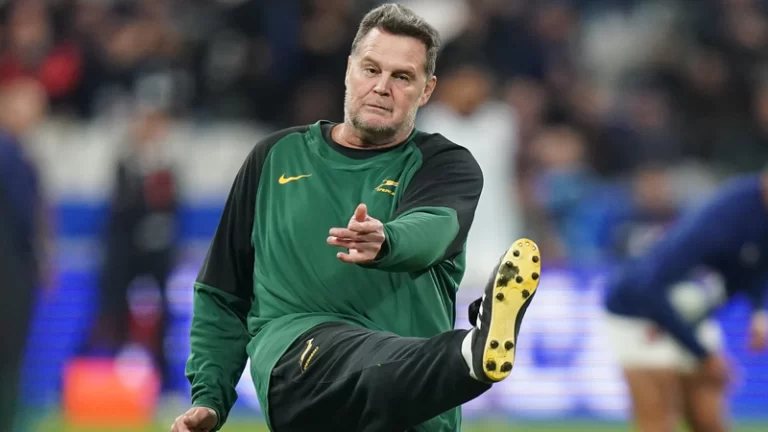The fact that Cassie Erasmus has not yet fulfilled his full potential in the rugby world is the nicest thing about his anticipated reappointment as head coach of the Springboks.
The individual making the appointment, the SA Rugby director, and the new coach are all the same person, therefore I use the phrase reappointment figuratively and with a smile.
It is known that Rassie and Jacques Nienaber have been co-head coaches of the Boks since 2018. Rassie resigned from his formal position as head coach to avoid having to handle the less glamorous aspects of the job, such as speaking with the media.
What I’m trying to say is that Springbok rugby was in a mess when Erasmus took over from Allister Coetzee in 2018, and the squad needed an ambulance job to get them competitive in Japan.
painstaking preparation
More than adequately supplied by the defibrillators, an improbable world champion team from Bok formed by methodically following a cautious game strategy.
A brand-new four-year cycle was scheduled to begin in the following year, 2020. Though it didn’t really matter what titles accompanied their names, the plan between Rassie and Nienaber would have begun to expand the Boks’ tactics.
It was said by both that they would have started immediately to increase squad depth and, more importantly, offensive alternatives. And they would have wanted to have an advanced Springbok squad playing at full strength in France after four years of expansion.
Unfortunately, Covid-19 made a horrific return, and the Boks didn’t play until July 2021. Importantly, their rivals did not suffer nearly as much as they did during those nearly two years of rugby loss. Among the strictest lockdowns globally was the one in South Africa.
The Boks had no option but to attempt to continue where they left off in Japan in 2021 because they had one hurried Test match against Georgia before to the series against the British & Irish Lions. For everything that rugby lost in 2020 and the first part of 2021, there was no room for improvement.
On their previous year-end trip, the Boks also struggled to do much, and it wasn’t until last year that they started to take strengthening their depth seriously.
I smile when I think of Rassie’s statement following his and Nienaber’s censure for making fourteen changes to the squad that faced Wales in Bloemfontein (a match they lost). “If we win the World Cup because we developed new players in Bloemfontein next year, nobody will be upset,” he declared.
I think Rassie won that one.
The turnaround
But let me get back to my original point—that we haven’t seen Rassie to her full potential. His behavior and most of his planning and strategizing have been focused on getting the Boks across the finish line against elite opponents.
The goal has been to close the gap on the world’s top teams. Despite his egregiously incorrect assessment, the focus has been on attempting to obtain more favorable treatment from referees.
It’s interesting that Rassie completely changed how he handled the officials just now. I’m aware that Nigel Owens, the most reputable referee in the world (as of late), sat him down and sternly corrected him.
The end product was a perfectly behaved Bok squad in France, and they most likely had some lucky breaks. Undoubtedly, the referees treated them better than they had ever been treated.
Rassie and the Boks get off to a strong start in the opening year of a new four-year cycle the following year. Since assuming leadership in 2018, Rassie has been battling from behind, but now that he has established strong foundations, he can put a comprehensive plan in place to maximize the performance of the Boks.
The Boks are in excellent health, especially since only Duane Vermeulen is no longer available out of the 33 players who traveled to France. Their potential is enhanced by their coach’s finally having free time.
